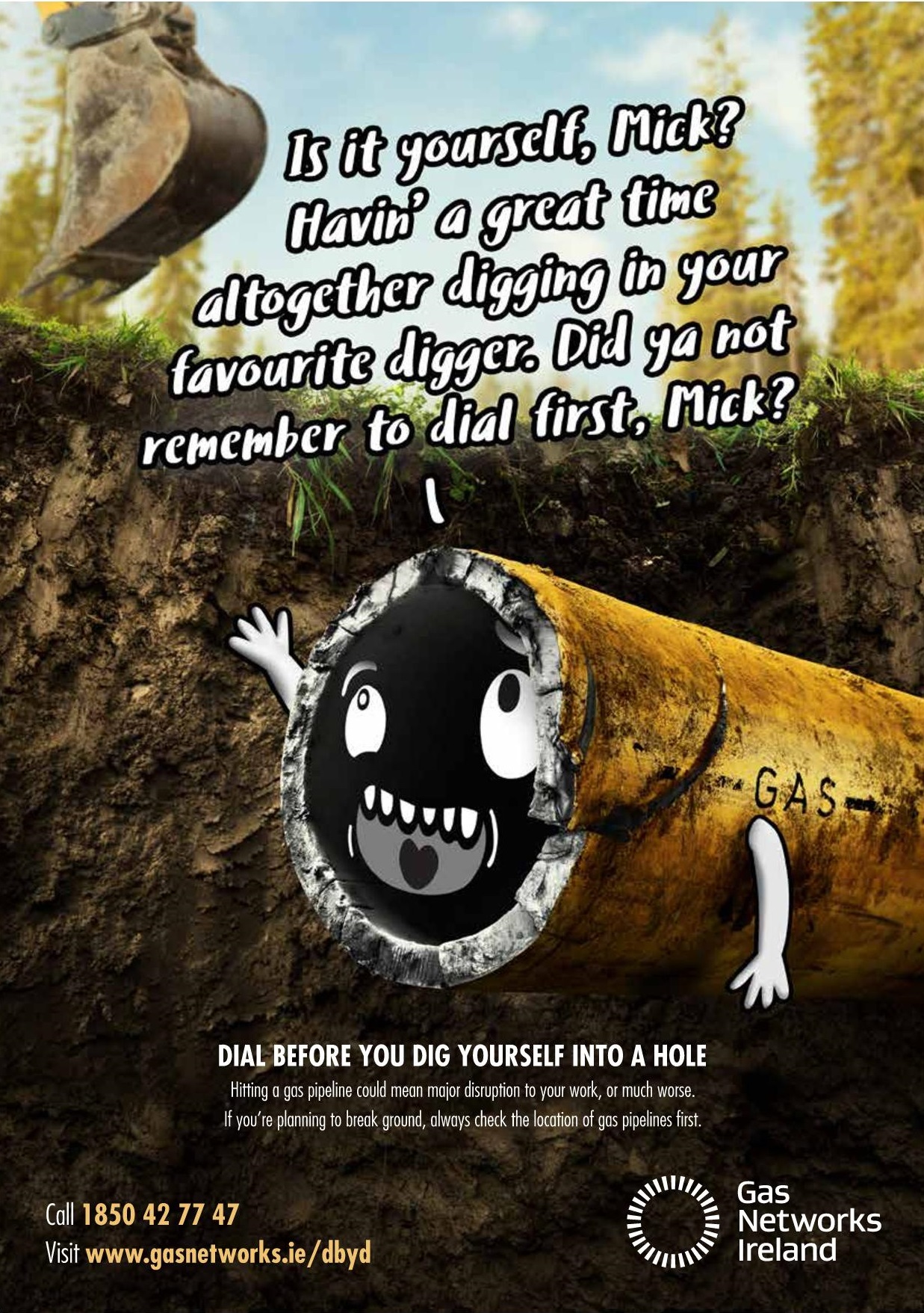Natural gas pipelines provide essential energy to hospitals, schools, homes and businesses 24 hours a day, every day of the year through a network of hidden, underground pipelines located in cities, towns and even fields, across the country.
Natural gas is highly flammable so damaging a gas pipeline can cause major disruption, property damage, serious injury and even death.
In 2019, there were approximately 650 incidents of actual damage caused to distribution gas pipes in towns and cities and nearly 50 incidents of unauthorised excavation at high pressure cross-country transmission pipelines.
Over 700,000 homes and businesses around Ireland use natural gas and benefit from the cost savings, convenience and reliability of the cleanest fossil fuel.
There are over 11,000km of distribution pipelines which operate at pressures up to 4 bar and are normally made from yellow polyethylene. These come in two forms: mains; and service pipes.
Mains pipes carry gas under the roads and footpaths of towns and cities around the country. Services are connected to the mains pipes and supply gas to individual domestic and commercial premises.
Ensure your safety
The GNI network is one of the safest gas networks in the world. A major risk to the network and to the safety of construction workers and the general public is the risk of damage caused by excavation works near gas pipelines.
When planning excavation works, you should always contact GNI in plenty of time before work starts and obtain maps of the gas network (see below).
If there is a high pressure transmission pipeline near where you plan to work, you must contact GNI so that the pipelines can advise on safety requirements.
Depending on what you plan to do, GNI will arrange for the location of the pipeline to be marked out and may also require that an inspector oversees the work. This service is free and is designed to ensure your safety and that of those around you.
Further resources
Gas Networks Ireland has prepared a simple guide, ‘Safety Advice for Working in the Vicinity of Natural Gas Pipes’, which contains information on the risks associated with excavating near natural gas pipelines, the correct steps to take to stay safe and other useful information whenever you are excavating near gas pipelines.
It is available at: www.gasnetworks.ie/Dial.
Specific advice for farmers and landowners is contained in the short “Safety Steps for Landowners” leaflet, also available at: www.gasnetworks.ie/Dial.


